I’ve been taking a free course on statistical inference online, which mentioned the World Values Survey. For this survey, interviewers ask people about religious, political, sexual, community, and life values. I haven’t looked at whether sample size, selection, fear of interviewers, or bias may affect the results. I suspect there are some issues in that area: for instance, Kazakhs were asked if elections are fair and if officials take bribes, while Americans were not. However, it’s still a great survey to use for thinking about social values, especially if you’re already familiar with the cultures and histories involved.
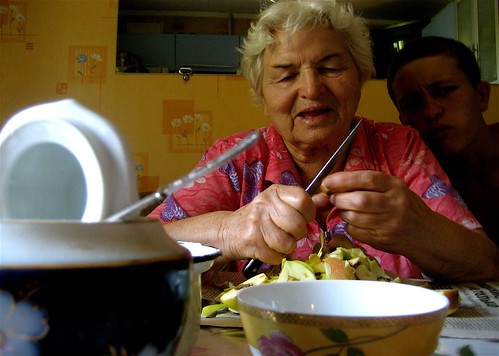
Below, I’ve cherry-picked data and paraphrased liberally. “Lies, damn lies,” and all that… In other words, I’m listing a few interesting differences (e.g. 2/3 of Kazakhs think something, but only 1/2 of Americans agree). But in 500 other instances, Americans and Kazakhs agree rather closely. So please don’t cite these extracts until you look at the full data yourself!
Kazakh and American Perspectives on Life
| What’s important in life? | Kazakhstan | America |
| Family is very important | 92% | 91% |
| Friends are very important | 48% | 54% |
| vs… Friends are not so important | 12% | 5% |
| Work is very important | 62% | 36% |
| Religion is very important | 22% | 40% |
Kazakhs and Americans both value family strongly. Kazakhs are more willing to verbalize that work is important to life (perhaps because good careers are harder to find in a still-developing economy), while American culture leads us to say we value friends and religion just as much. As we’ll see below, religion is a more active part of family life inAmerica.
| I think my health is… | Kazakhstan | America |
| Very good | 14% | 28% |
| Fair | 33% | 16% |
Americans are more confident in their health, and perhaps have more disposable income to spend on healthcare and food.
| Let’s teach kids at home about: | Kazakhstan | America |
| Hard work | 85% | 66% |
| Imagination | 12% | 31% |
| Religion | 10% | 43% |
| Self-expression | 29% | 18% |
The fact that Americans value teaching children about imagination and religion, while Kazakh families teach children about hard work, is not a surprise. What does surprise me is the higher priority on teaching children self-expression in Kazakhstan: perhaps this is an aspect of the way young children are cherished and openly celebrated in Kazakhstan?
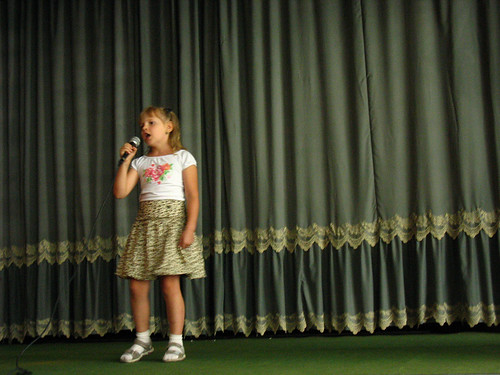
| I’m an active member of a: | Kazakhstan | America |
| Religious group | 3% | 35% |
| Sport group | 4% | 15% |
| Labor union | 2% | 7% |
| Political party | 2% | 15% |
| Professional group | 2% | 12% |
| Charity group | 2% | 16% |
As I’ve noted on social networks, Astana residents are less involved in civic groups than Americans; high religious participation is worrisome, especially among the young. Kazakhs clean the neighborhood (subbotniks) or attend elections when ordered to by boss or other leader, so maybe the fact that community is a duty makes it less likely for people to volunteer? I’d also be curious to see how class matches participation: when affluent Americans volunteer, middle-class people join civic groups to improve their own status. If rich Kazakhs don’t volunteer in their communities, it’s unlikely that middle class people will do so.
| I feel strongly that: | Kazakhstan | America |
| I’m a world citizen | 30% | 21% |
| I’m part of my local community | 14% | 25% |
Tied to this (and mind that I’m focused on only ‘strongly agree’ and ignoring ‘agree/disagree/strongly disagree’ here), Kazakhs are more likely to focus internationally, while Americans may feel a greater sense of community locally than internationally.
| Not in my backyard: | Kazakhstan | America |
| Druggies | 93% | 88% |
| Other races | 11% | 6% |
| People with AIDS | 60% | 13% |
| Immigrants | 28% | 14% |
| Gay people | 74% | 20% |
| Other religions | 12% | 3% |
| Other languages | 11% | 13% |
Americans and Kazakhs openly don’t want drug addicts living in the neighborhood. Few people openly say they don’t want people of other races, religions, or languages around. Kazakh society allows people to be significantly more negative towards gay people and people with AIDS; your visa can actually be revoked as a foreigner if you get AIDS in Kazakhstan!
| Not enough jobs? Give them to: | Kazakhstan | America |
| Men (not women) | 45% | 6% |
| Citizens (not foreigners) | 77% | 50% |
I wonder if Americans think of foreigners as more highly skilled Indians and Chinese, or if we’re less worried because we have more jobs. Kazakhs may be more apt to think of menial workers from Uzbekistan or Turkey who directly take away work from the average man.
| I agree/strongly agree that: | Kazakhstan | America |
| It’s a problem if women earn more | 26% | 12% |
| Men make better political leaders | 50% | 19% |
| Men make better business executives | 52% | 12% |
Here I’d be interested to go back to the World Values website and compare changes in American opinion over time.
| On loyalty: | Kazakhstan | America |
| I’d fight for my country | 77% | 58% |
| My goal is to make my parents proud | 92% | 77% |
| It’s good to respect authority more | 54% | 55% |
More patriotism on the part of Kazakhs… is this because Soviet Kazakhstan recruited women soldiers as often as men, while America emphasizes national defense as a male duty? I also find it surprising that a desire for more respect of authority is almost equal in both populations.
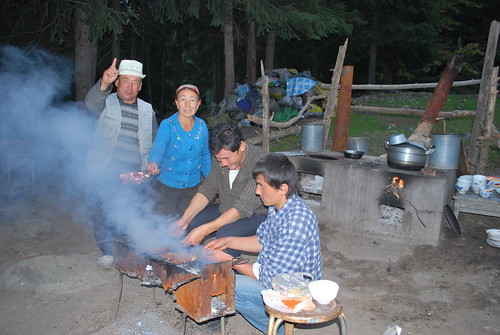
| The biggest world problem is: | Kazakhstan | America |
| Poverty | 63% | 53% |
| Lack of education | 8% | 19% |
| Environmental pollution | 14% | 10% |
Citizens of both countries see poverty as an overwhelming concern worldwide; Americans are more concerned to improve education (probably because we believe it’s a “magic bullet” that will improve everything else) while Kazakhs experience pollution as a more pressing issue.
| On activism: | Kazakhstan | America |
| I’ve signed a petition before | 2% | 60% |
| I’ve joined a boycott before | 1% | 16% |
| I’ve attended a peaceful demonstration before | 6% | 14% |
| I might attend a peaceful demonstration | 18% | 55% |
| I’d never attend a peaceful demonstration | 76% | 30% |
Americans are much more confident that they may express political views publicly and without cost. We’re used to signing petitions. Kazakhs are much more wary about crossing the powers that be. Note that ‘peaceful demonstration’ was specified in this question.
| I think… | Kazakhstan | America |
| We need more private industry | 7% | 23% |
| We need more state ownership | 24% | 2% |
(Note: I’m pulling 1 and 10 off a ten-point likert scale. That means one of those pesky “do you agree, on a scale of 1-10?” questions). Excluding all the middle points, we’re seeing Americans who believe that privatization can fix things. Central Asians experienced post-Soviet privatization of state monopolies as a disaster, and put more trust in state ownership.
| I believe… | Kazakhstan | America |
| The state should provide for us | 31% | 9% |
| People should provide for themselves | 7% | 18% |
Another ten point scale. In Kazakhstan, a legacy of the Soviet Union, when state provision helped the elderly, the widows, the orphans, and the poor much more effectively than today’s market economy. In America, the ideology of bootstraps.
| On a ten-point scale: | Kazakhstan | America |
| Hard work will get me a better life | 22% | 20% |
| Luck and connection get a better life | 11% | 4% |
A fifth of Americans and Kazakhs agree that hard work gets you places. 11% of Kazakhs think connections are most important, and 35% of Kazakhs think connections are more important, but not absolutely. Open use of connections is much more likely to get you a good job in Kazakhstan. In America, it has to be more subtle.
| . | Kazakhstan | America |
| I trust my family = completely | 93% | 69% |
| I trust my neighborhood = completely | 24% | 8% |
| I trust the press = a great deal | 10% | 2% |
| i trust the TV = a great deal | 15% | 2% |
| I trust the state = a great deal | 26% | 4% |
| I trust universities = a great deal | 15% | 10% |
| I trust big companies = a great deal | 10% | 3% |
| I trust charities = a great deal | 13% | 10% |
We see strong trust in Kazakh families, while Americans are more skeptical about their kin. In fact, Americans are quite a bit more skeptical in general.
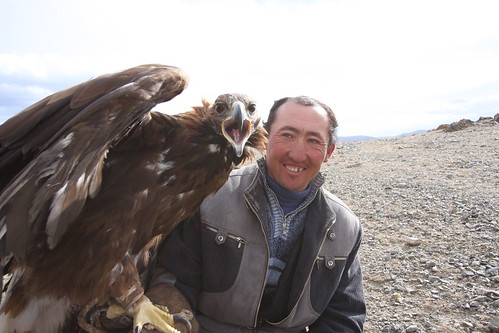
| It’s essential for democracy to: | Kazakhstan | America |
| Tax the rich | 26% | 7% |
| Provide unemployment aid | 38% | 12% |
| Ensure civil rights | 37% | 32% |
| Ensure equal income | 29% | 4% |
Again, these are the 10s on a 10 point scale. Kazakhs and Americans both value civil rights, but Kazakhs are more likely to hope the government will intervene on painful issues of income inequality and unjust wealth.
…Interestingly, on the related question of ‘how democratically this country is being governed today,’ Americans and Kazakhs agreed almost exactly on every number on the ten-point scale (not at all, somewhat, very much). Whether or not our democracies are different, the percent of the population that believes their country is democratic is almost exactly the same!
| Religion: | Kazakhstan | America |
| I’m a Muslim | 50% | 1% |
| I’m Orthodox | 27% | — |
| I’m a Protestant | 1% | 24% |
| I’m a Catholic | 1% | 22% |
| I’m another religion/athiest | — | 16% |
Not surprising. Here for your reference.
| . | Kazakhstan | America |
| I believe in God | 89% | 88% |
| I pray weekly or daily | 24% | 65% |
| I pray at services or on holy days only | 31% | 7% |
Kazakhs and Americans are similarly likely to believe in God. However, the actual question for the next two statistics is,“ apart from weddings and funerals, how often do you pray?” Kazakhs are most likely to pray as part of a community–at weddings, funerals, religious services, or holy days. Americans are more likely to pray constantly and in private. Why does this question define prayer and religious participation by American values?
| To stay safe, I… | Kazakhstan | America |
| Don’t carry lots of money | 72% | 54% |
| Don’t go out at night | 70% | 38% |
| Carry a weapon | 4% | 16% |
I’ve been urged not to carry money on me or go out at night in Kazakhstan, regardless of actual danger. I know of no one in polite society who carries weapons there.
| I’m very worried about… | Kazakhstan | America |
| Losing my job | 43% | 22% |
| Education for my kids | 39% | 16% |
| A war involving my country | 44% | 15% |
| Terrorist attacks | 49% | 18% |
| Civil War | 42% | 8% |
| The government watching me | 16% | 13% |
On a four-point scale (very much, great deal, not much, not at all), it’s interesting that Kazakhs are much more likely to be worried for their family, economics, and about war. Did the post-Soviet chaos really make life in Kazakhstan feel that much more unstable? Are Americans just under pressure to ‘think positive’? Also f note: neither group worries about the government, although both governments actively monitor their citizens.
| This year, sometimes or often my family has: | Kazakhstan | America |
| Not been able to get needed healthcare or medical treatments | 12% | 21% |
| Not been able to bring in cash income | 39% | 22% |
Kazakh families are more likely to report trouble finding work, and American families to have trouble accessing healthcare. The quality of healthcare is not as high in Kazakhstan, but it is much less expensive for things like hospital visits.
| It’s never justified for someone to: | Kazakhstan | America |
| Avoid paying a bus fare | 38% | 52% |
| Engage in homosexuality | 67% | 24% |
| Beat your wife | 63% | 85% |
| Be violent toward someone | 74% | 65% |
Kazakhs are more likely to feel okay not paying a bus fare, although they don’t feel stealing is all right. Americans condemn wife and child beating quite strongly, but seem to think it’s more acceptable to be violent outside the family. Again, how much of this difference is just because we feel guilty saying something’s okay, and how much are these real cultural shifts in American values?
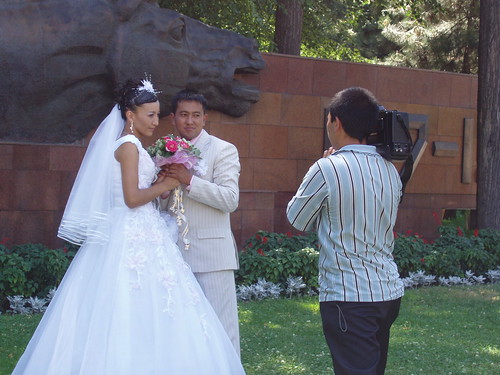
| At home I speak… | Kazakhstan | America |
| Kazakh | 46% | — |
| Russian | 50% | — |
| English | — | 89% |
| Spanish | — | 8% |
Kazakhstan has many Russians as well as Kazakhs; citizens claim to be split evenly as Kazakh and Russian speakers.
| This interview was in… | Kazakhstan | America |
| Kazakh | 23% | — |
| Russian | 78% | — |
| English | — | 94% |
| Spanish | — | 6% |
However, most of the interviews were led in Russian. If it’s the interviewee’s choice, it suggests that many ethnic Kazakhs aren’t really fluent in the Kazakh language, due to the strong use of Russian a generation ago.
| I get my information from: | Kazakhstan | America |
| TV, daily | 85% | 59% |
| Mobile phone, daily | 45% | 28% |
| Email, daily | 19% | 36% |
| Internet, daily | 24% | 50% |
| Conversations, daily | 65% | 42% |
One for the library and information scientists! Kazakhs rely heavily on TV news, personal socializing, and sending actual information via cell phone calls or SMS messages. Americans look for information online from strangers, which is a challenge for librarians who work primarily in person. Neither group gets as much information in person as they likely used to.
So… where are you getting your information? How involved are your countrymen in politics? Who believes in God in Zimbabwe? Find out more here: http://www.worldvaluessurvey.org/WVSOnline.jsp

Wow, I m very impressed with your blog. Thanks a lot) it was quite interesting to compare values with Americans. Surprised how many fears and worries in kazn still.
Thanks! Yes, I thought maybe it’s many worries in Kazn. My father suggested perhaps it’s just that Americans don’t admit to themselves how worried they can be. So… interesting survey, but it leaves a lot unexplained!
Pingback: Loving the Data: Who’s Single in America? – The Dumpling Cart
Очень интересно сравнили ценности казахстанцев и американцев, некоторые моменты удивили, такие как, что К больше поощряют у детей попытки самовыражения, считают себя гражданином мира, и 76% никогда не участвовали в мирных протестах.